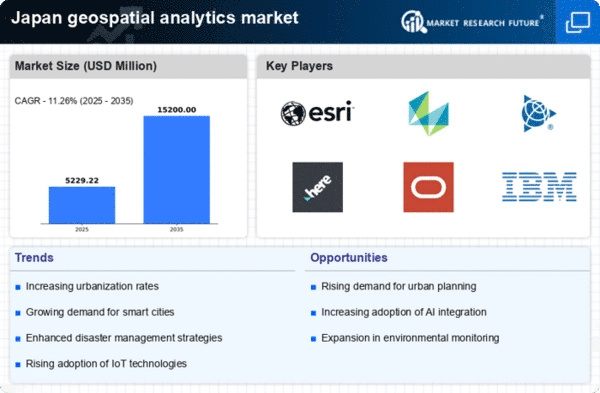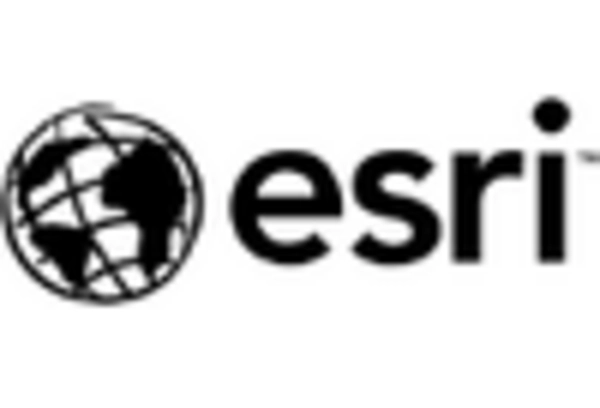Advancements in Satellite Technology
Technological advancements in satellite imagery and remote sensing are transforming the geospatial analytics market in Japan. Enhanced satellite capabilities allow for more accurate and timely data collection, which is essential for various applications, including environmental monitoring, agriculture, and urban planning. The Japanese space agency has been actively launching new satellites, with plans to increase the number of operational satellites by 20% over the next three years. This influx of high-resolution data is expected to drive demand for geospatial analytics solutions, as organizations seek to harness this information for strategic decision-making.
Rising Demand for Location-Based Services
The increasing reliance on location-based services is a notable driver for the geospatial analytics market in Japan. Businesses across various sectors, including retail, logistics, and tourism, are leveraging geospatial data to enhance customer experiences and optimize operations. For instance, the retail sector is utilizing geospatial analytics to identify optimal store locations, leading to improved sales performance. According to recent estimates, the market for location-based services in Japan is projected to grow at a CAGR of approximately 15% over the next five years. This growth is indicative of the broader trend towards data-driven decision-making, which is likely to further propel the geospatial analytics market.
Growing Awareness of Environmental Sustainability
There is a rising awareness of environmental sustainability among businesses and consumers in Japan, which is influencing the geospatial analytics market. Companies are increasingly utilizing geospatial data to assess their environmental impact and implement sustainable practices. For instance, the agriculture sector is adopting precision farming techniques, which rely on geospatial analytics to optimize resource use and minimize waste. This trend is likely to continue, as more organizations recognize the importance of sustainability in their operations. The market for environmental geospatial analytics is expected to grow by approximately 12% annually, reflecting this shift towards eco-friendly practices.
Government Investment in Infrastructure Development
The Japanese government is significantly investing in infrastructure development, which serves as a crucial driver for the geospatial analytics market. Initiatives aimed at improving transportation networks, urban planning, and disaster management are increasingly relying on geospatial data for effective implementation. For example, the government has allocated over ¥10 trillion for infrastructure projects in the coming years, emphasizing the need for advanced analytics to monitor and manage these developments. This investment not only enhances public services but also creates opportunities for private sector engagement in the geospatial analytics market, fostering innovation and growth.
Integration of Big Data with Geospatial Technologies
Integrating big data analytics with geospatial technologies is emerging as a key driver for the geospatial analytics market in Japan. Organizations are increasingly combining vast datasets with geospatial information to gain deeper insights and improve decision-making processes. This trend is particularly evident in sectors such as healthcare, where geospatial analytics is used to track disease outbreaks and optimize resource allocation. The market for big data analytics in Japan is projected to reach ¥1 trillion by 2026, indicating a strong potential for growth in the geospatial analytics market as businesses seek to leverage these combined capabilities.
















